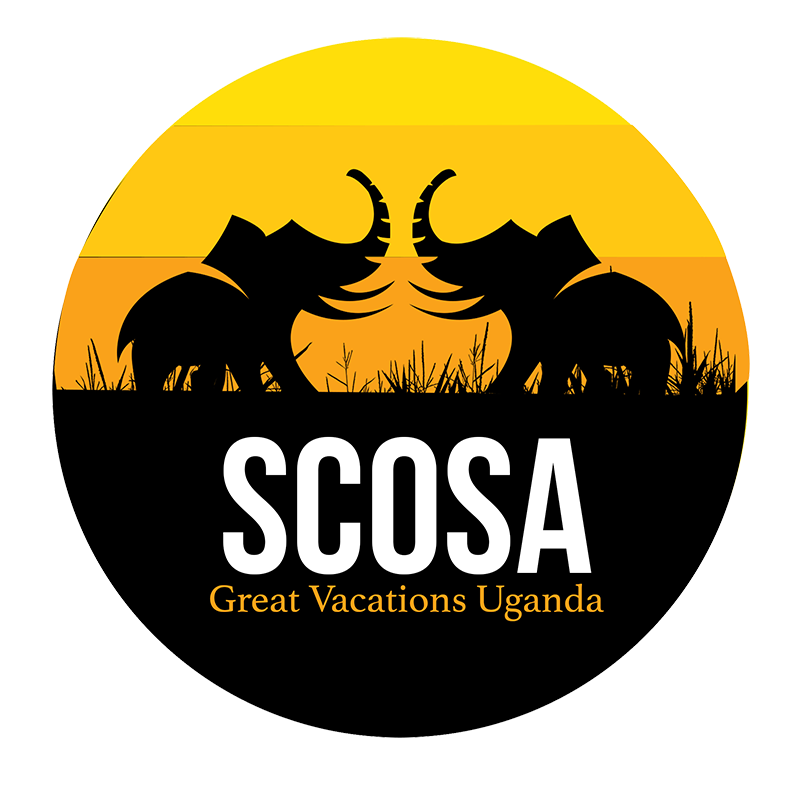Rwanda: Land of a thousand Hills
Rwanda, the fabled “Land of a Thousand Hills” is a small landlocked country in east-central Africa. The country lies 75 miles south of the Equator, 880 miles west of the Indian Ocean and 1,250 east of the Atlantic Ocean – literally in the heart of Africa.
The country lies within the Great Lakes region of Central Africa and boasts a moderate climate. Mountains dominate the centre and west of the country, while the East consists of savannah, plains and swamps. Rwanda has 5 volcanoes, 23 lakes and numerous rivers some forming the source of River Nile.
With a land area of 26,338 Km² Rwanda is one of Africa’s smallest countries. Rwanda is bordered by Uganda to the North, Tanzania to the East, Burundi in the south and Democratic Republic of Congo to the west. Small as it is, Rwanda has an incredible treasure trove of biodiversity that requires protection. The Albertine Rift Eco-zone (ARE), the region that stretches across six countries with Rwanda as its epicenter, is of particular importance. Scientists regard it as having the highest level of biodiversity on the continent.
The shores of Lake Kivu boast some of the best inland beaches in Africa and offer an opportunity to explore the many small islands on the Lake. Kigali, the Capital and Conference hub of East Africa, forms the central stepping stone to various destinations within the country and Central and East Africa. The city is green, vibrant, and safe and brews superb homegrown tea and Coffee.
Hikers & Trekkers Promise
Hikers & Trekkers Safaris connects discerning travelers with top best travel agents who compete to customize your luxury trips. You get:
- Quality service at best value
- Authentic travel experiences
- Expert destination advice
Best Time To Go
Gorilla Viewing: Gorilla trekking can take place at any time of year with April/May and November being wetter. However, be aware that rain occurs all year round. For general game viewing safaris, the best time to go is during the dry season (between June and September).
Tailored Rwanda Tours
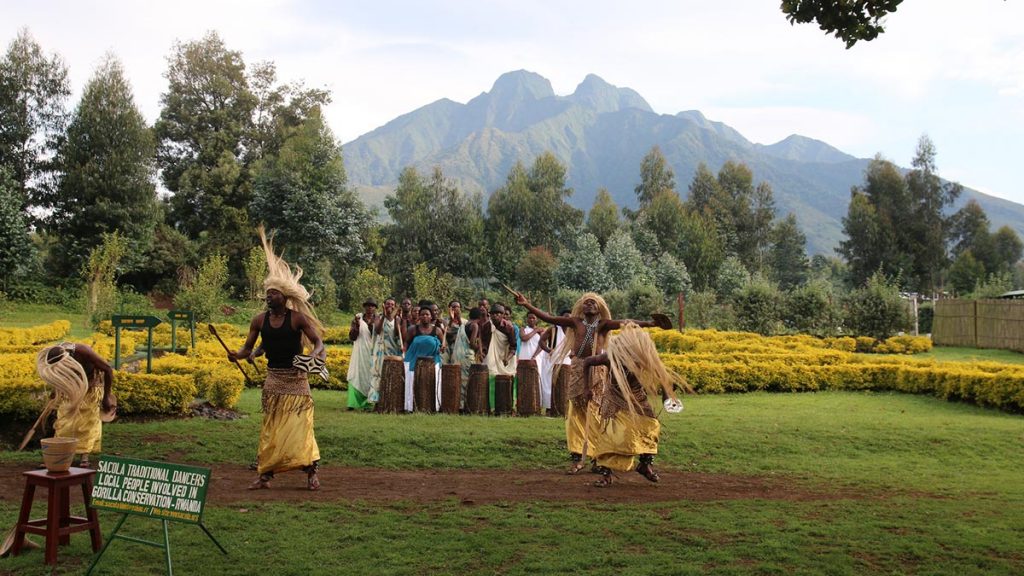
Remarkable Highlights of Rwanda Tour
Visiting: Kigali, Akagera NP, Nyungwe Forest & Volcanoes National Park
20 DAYS/19 NIGHTS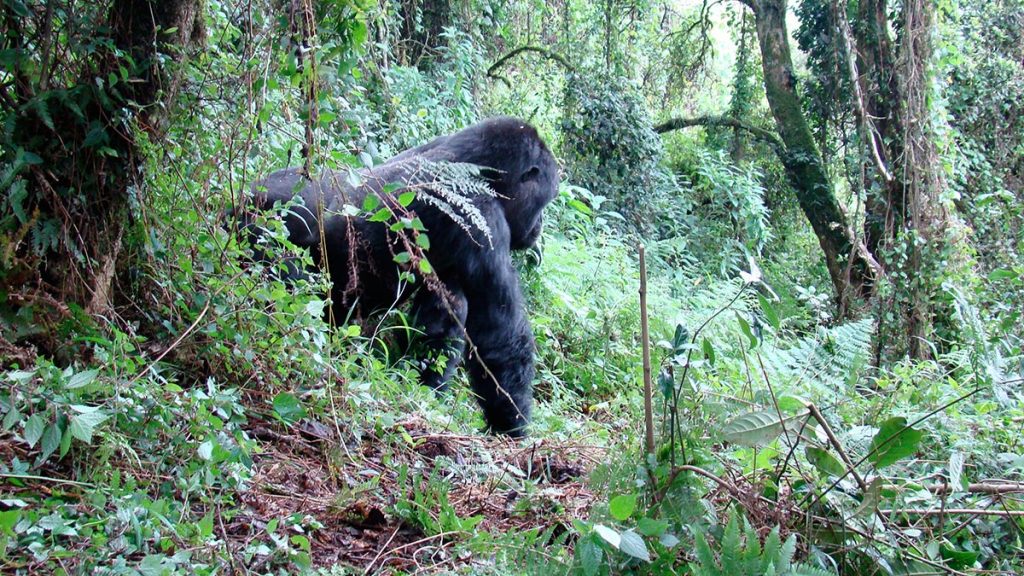
Gorillas & Golden Monkey Safari
Visiting: Kigali Capital Excursion & Volcanoes National Park
5 DAYS/4 NIGHTS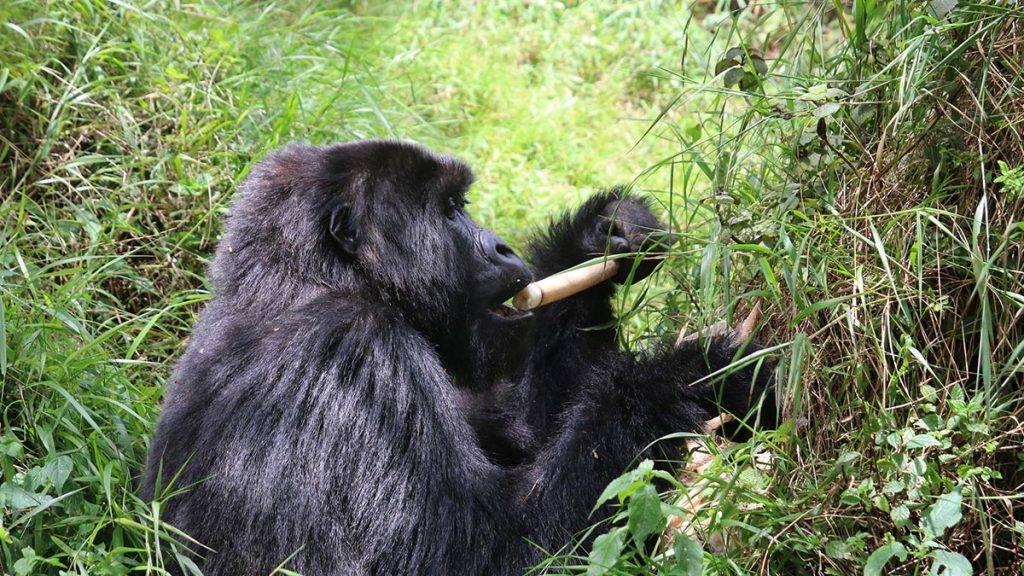
Adventure in Both Rwanda & Uganda
Visiting: Uganda and Rwanda from Kigali to Entebbe exit
20 DAYS/19 NIGHTSHistory
The original inhabitants of Rwanda were the Twa, a Pygmy people who now make up only 1% of the population. While the Hutu and Tutsi are often considered to be two separate ethnic groups, scholars point out that they speak the same language, have a history of intermarriage, and share many cultural characteristics. Traditionally, the differences between the two groups were occupational rather than ethnic. Agricultural people were considered Hutu, while the cattle-owning elite were identified as Tutsi. Supposedly Tutsi were tall and thin, while Hutu were short and square, but it is often impossible to tell one from the other. The 1933 requirement by the Belgians that everyone carry an identity card indicating tribal ethnicity as Tutsi or Hutu enhanced the distinction. Since independence, repeated violence in both Rwanda and Burundi has increased ethnic differentiation between the groups.
Rwanda, which became a part of German East Africa in 1890, was first visited by European explorers in 1854. During World War I, it was occupied in 1916 by Belgian troops. After the war, it became a Belgian League of Nations mandate, along with Burundi, under the name of Ruanda-Urundi. The mandate was made a UN trust territory in 1946. Until the Belgian Congo achieved independence in 1960, Rwanda-Urundi was administered as part of that colony. Belgium at first maintained Tutsi dominance but eventually encouraged power sharing between Hutu and Tutsi. Ethnic tensions led to civil war, forcing many Tutsi into exile. When Rwanda became the independent nation of Rwanda on July 1, 1962, it was under Hutu rule.
The Rwanda Genocide
In Oct. 1990, the Rwandan Patriotic Front (RPF), Tutsi rebels in exile in Uganda, invaded the Hutu-led Rwandan government, sparking off what was to become one of the worst genocide massacres of the century. As the fighting raged peace talks were engineered in Arusha that culminated in the signing of a peace accord between the rebels and the Government Peace accords were signed in Aug. 1993, calling for a coalition government. But after the downing of a plane in April 1994 that killed the presidents of both Rwanda and Burundi, deep-seated ethnic violence erupted. To-date there is no certainty about who shot down the plane but one school of thought is that it was Hutu extremists who were against the Hutu-Tutsi power-sharing plan endorsed by President JuvénalHabyarimana, a Hutu moderate.
The presidential guard began murdering Tutsi opposition leaders, and soon policemen and soldiers turned against the entire Tutsi population. In 100 days, beginning in April 1994, the Hutu rampaged through the country and slaughtered an estimated 800,000 Tutsi and their moderate Hutu sympathizers. 30,000-member militia groups, the Interahamwe, led much of the murderous spree, and were joined by the ordinary Hutu who were mobilized through radio propaganda. Although the genocidal slaughter seemed a spontaneous eruption of hatred, it has in fact been shown to have been carefully orchestrated by the Hutu government. This became known as 'Rwanda Genocide’ and it is still what most people think when they hear or read about ‘Rwanda’.
Rwanda Population
According to the population projections, it is estimated that the total population of Rwanda in 2012 was around 11,033,141. Rwanda's population density, even after the 1994 genocide, is among the highest in Sub-Saharan Africa at 230/km² (590/sq mi). This country has few villages, and nearly every family lives in a self-contained compound on a hillside. The urban concentrations are grouped around administrative centers. Over half of the adult population is literate, but no more than 5% have received secondary education.
Religion in Rwanda
The most recent statistics on religion in Rwanda were published by the US Government in 2013, yet the source information dates back to the national Census of 2002, which reports that: 56.9% of the Rwanda's population is Roman Catholic, 26% is Protestant, 11.1% is Seventh–day Adventist, 4.6% is Muslim (mainly Sunni), 1.7% claims no religious affiliation, and 0.1% practices traditional indigenous beliefs. There is also a small population of Baha'is. There has been a proliferation of small, usually Christian-linked schismatic religious groups since the 1994 genocide, as well as substantial conversion to Islam.
Time in Rwanda
There is no time difference between winter and summer months in Rwanda. It is always two hours ahead of Greenwich Mean Time (GMT+2) – Rwanda is in Central Africa Time Zone (CAT). Kigali is 6 hours ahead of Washington D.C., 1 hour ahead of London - UK and 8 hours behind Sydney, Australia.
Travel Tips on Rwanda
Getting to Rwanda
The main airport in Kigali is the Kanombe International Airport. It is located 10 km east of the Kigali centre. Kigali currently receives direct flights from Nairobi, Entebbe, Bujambura, Addis Ababa, Kilimanjaro, Brussels, Amsterdam, Dar es Salaam, Istanbul, Johannesburg, Juba, Lagos and Dubai. It is also possible to take a bus from neighboring countries.
Getting around Rwanda
Short distances within cities can be travelled either on foot or by taxi-velo (bicycle taxi). These are relatively inexpensive. Motorcycle taxis (taxi moto) are the most popular in Kigali. These taxis can be identified by their jerseys and they always have an extra helmet. Most drivers speak Basic English or French. Laws require moto-bikes to use helmets, and Rwandans abide by this.
Taxis are common and can be found at taxi stands in Kigali and provinces and they have specific bus stops. One may hire a special taxi by calling them or if at any hotel, reception can call a recommended driver for you. These are more expensive than motorcycle taxis and other public buses.
“Matatus” are the white with green or yellow minibuses that travel across the country. Rwanda has a good local transportation system for inter-region connectivity, good road system, and has plenty of well maintained and modern minibuses. Cars and drivers can be hired from Kigali, and most of the roads are well maintained. To make your trip more interesting, if considering driving from Kigali to other provinces of Rwanda, e.g. along lake Kivu, it is recommended that you get a 4x4 and travel with someone who knows the area or use the public transport (Matatus) as from the regional cars parking at Nyabugogo, each 30 minutes there are buses from different transport agencies linking Kigali to other cities of the country. Back country driving is perfect for anyone with a sense of adventure. Be sure to advise your clients to get a 4x4, good maps, and a working phone before leaving
Rwanda Entry Visas
All people wishing to enter Rwanda must possess a valid passport or other internationally recognized travel documents, which, in principle, contains a visa corresponding to his/her purpose of entry into Rwanda obtained in advance from the nearest Rwandan embassy abroad. Currently (Oct 2014) only USA and UK passports get free visa upon arrival –for a stay of up to 90 days. Citizens of these two countries do not need to purchase a visa when travelling to Rwanda; passports are just stamped on arrival. Rwanda visas are easily obtainable on arrival at all entry points but you can as well apply online. We however recommend that you apply for the visa three months in advance. There is also a tourist visa that has been introduced for the three East African countries of Kenya, Rwanda and Uganda.
Money
Rwanda’s unit of currency is the Rwandan franc (Rwf). It is best to arrive in Rwanda with US dollars or Euros in cash, which can be exchanged either at the airport or at any FOREX bureau or bank. Banque de Kigalioffers cash advances on credit cards and also accepts travelers’ cheques, which is not possible in the provinces.There are ATMs throughout Kigali that are accessible to visitors.Credit cards are accepted in some up-market restaurants and hotels, but it is best to confirm prior to ordering.Bureaux de Change are mostly located in Kigali and offer slightly better exchange rates than most banks. All banks and most Bureauxde Change are closed on Sundays, and on the last Saturday of every month until 11:00 am for the national day of community work, “UMUGANDA”.
Tipping Culture
It is customary to tip for service in restaurants and bars. A tip of 5% is very acceptable and a tip of 20% is very generous. It is also customary to tip your driver/guide at the end of a safari or hike, as well as the cook and/or porter that may accompany to you.
Tipping is not at any fixed amount and may depend on personal wish.
Using Internet
Wifi is available in most hotels, free of charge. It is quite easy to find Cafés in Kigali with wifi, but it is not always guaranteed so it is best to check beforehand if you are planning on using internet. The lodges in the countryside are also equipped with wifi, however, cafés and restaurants outside of Kigali generally do not.
Phone and SIM Cards
Pay as you go SIM cards and phones are available in most major retailers around Kigali. There are also multiple phone registration kiosks and stands around the city where you may purchase and register SIM cards.
Food in Rwanda
Typical Rwandan meal consists of mostly starchy food – such as rice, sweet potatoes, corn, millet, cassava, yams cooked with beans, peas. Also flour cooked into porridge - and fresh fruit, including avocados, mangos and papayas. Food in Rwanda varies from mediocre to good. Umutsima (Cassava and corn), isombe (cassava leaves with eggplant and spinach) and mizuzu (fried plantains) are some of Rwanda's traditional dishes. Drinks include local beer and ikigage, a locally brewed beer made from sorghum. Fresh fruit and the Belgian-inspired cuisine are usually good.
Health in Rwanda
There are medical facilities of Western standards in Kigali; elsewhere facilities are rudimentary. It is advisable to be up-to-date on vaccinations for typhoid, tetanus, polio and diphtheria. Travellers are advised to have the Havrix vaccine to guard against infection by hepatitis A and a yellow fever certificate is usually required for entry into Rwanda. Malaria is widespread throughout lowland Rwanda, so malaria precautions are generally essential. HIV infection rates are high in Rwanda and visitors are advised to be cautious.
Language in Rwanda
The main language spoken in Rwanda is Kinyarwanda (a Bantu language, also known as 'Rwanda' or 'Ruanda'). French is widespread and English is also spoken by many people who are in contact with visitors.
Weather and climate in Rwanda
Rwanda presents visitors with a pleasant tropical highland climate, although rainfall is not uncommon. There are two rainy seasons (February to April, November to January); mild in mountains with frost and snow possible.
Average daytime temperature is around 24°C, except in the higher mountains, which take up a lot of the country, where the range is 10°C to 15°C. Rwanda can be visited at any time of year. The dry season from mid-May to mid-October is easier for tracking mountain gorillas, but the endless hills are barren, a contrast to the verdant greens of the wet season. Peak season for gorilla tracking is July and August; travelling outside this time means it is easier to arrange a permit.
It rains more frequently and heavily in the northeast, where the volcanoes are covered by rainforest. The summit of Karisimbi (4507m), the highest peak in Rwanda, is often covered with sleet or snow.
Top Rwanda Destinations
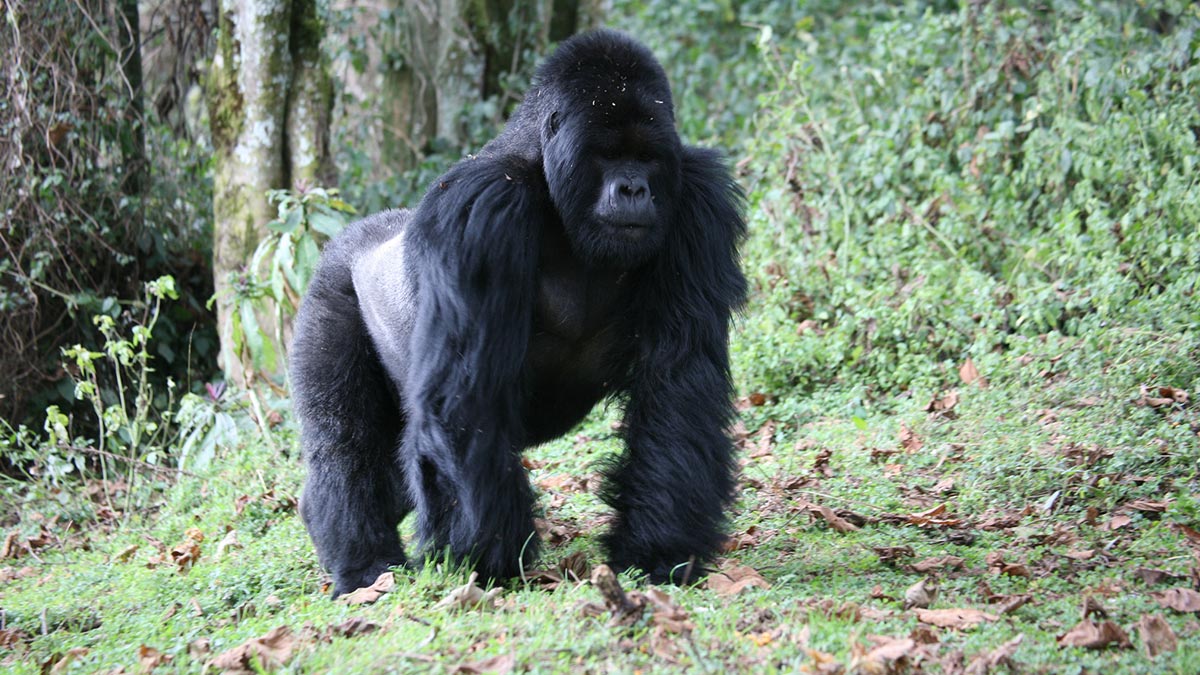
The Gorillas in the Virunga Mountains
The gorillas in these mountains are shared with countries like the Uganda and Democratic republic of Congo. These three countries share the few remaining gorillas in the world. People frequent Parc National Des Volcans to track these humble giants that have endured civil and world wars. People come from all over the world to spend one hour with these great apes. Looking through the eyes of these humble giants (Gorilla), gives you a feeling that triggers a question in your mind that goes "Why, why, why, not protect" they are really exhilarating.
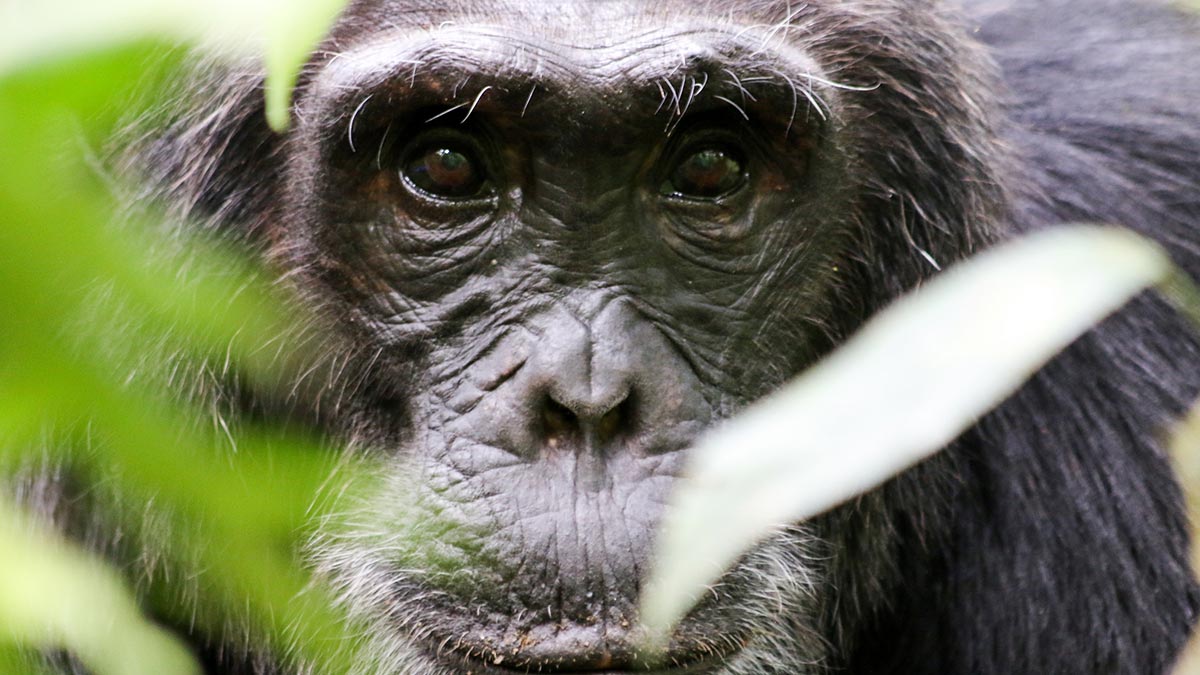
Nyungwe Forest Chimpanzees
Nyungwe is a montane forest that is remarkably rich in biodiversity with 75 mammal species, 120 butterflies, 275 birds and over 100 varieties of orchids. The forest is well known for its primates and chimpanzee tracking can be arranged at a short notice and at a small fee. Other primates in this forest include several other varieties of monkeys. The roads to the forest are good and with excellent rent houses and campsites to provide the necessary services to you while in the forest. A nature walk through this forest can be truly rewarding. Read More >>>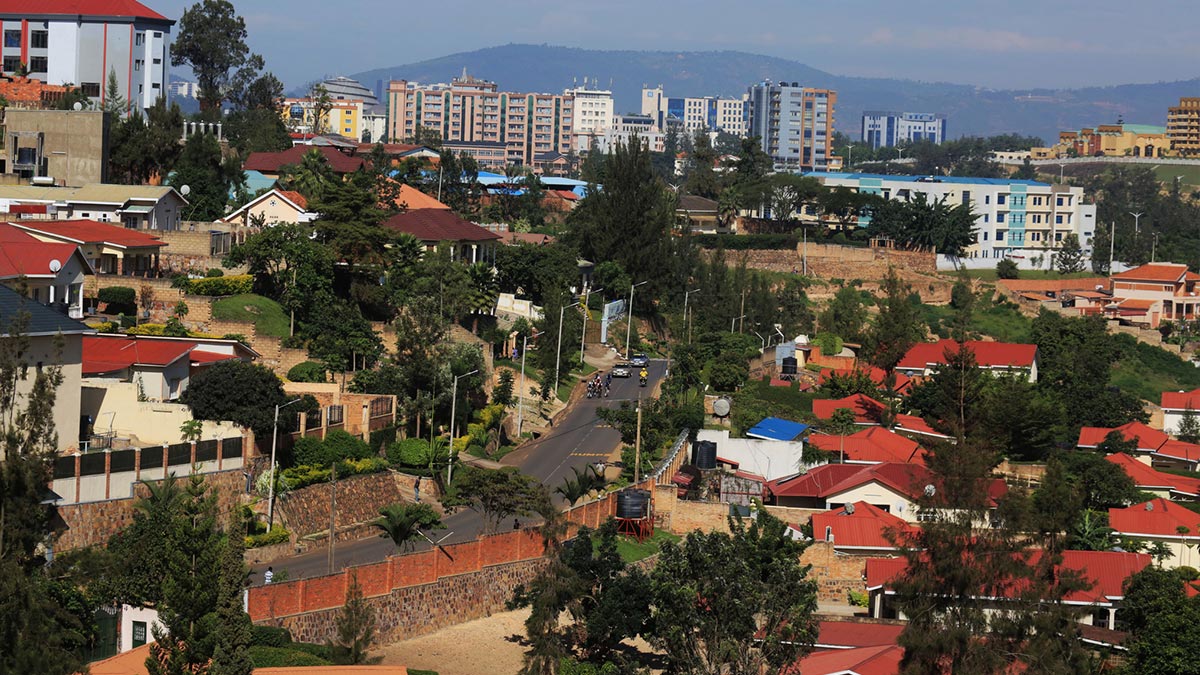
The Vibrant Kigali City
Kigali is the dynamic capital at the heart of Rwanda. Peacefully nestled along picturesque hilltops, Kigali is a thriving African city immediately notable for its cleanliness, orderliness, and hospitality. Kigali is a great place to begin or end any Rwanda journey as it is conveniently located in the geographic center of the country. The city is clean and safe, with extremely welcoming people. Travelers will enjoy exploring the great cultural activities - including several award-winning museums, burgeoning music scene, and some of East Africa's most memorable dining experiences.
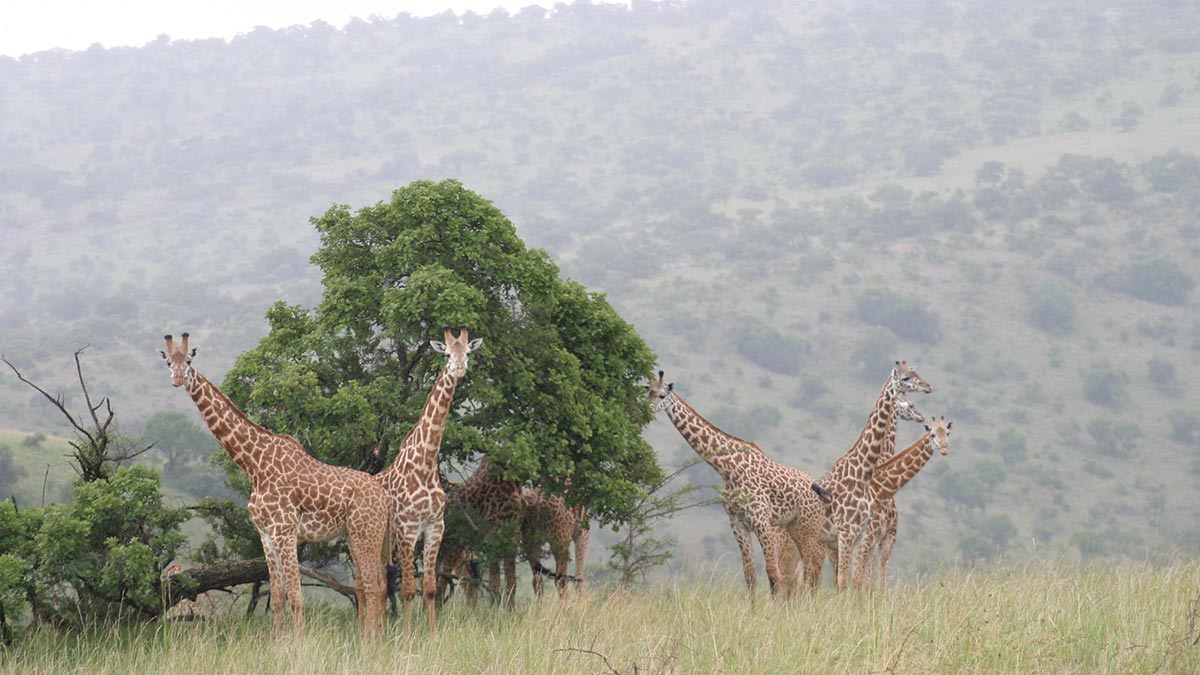
Akagera National Park
Named after the Akagera River running along its eastern boundary, Akagera National Park is warm and low-lying with undulating plains supporting a cover of dense broad leafed trees with acacia woodlands and grasslands.
The park harbours over 20 mammal species. The eastern side is wet and it is known to harbour almost the largest number of hippos is Africa. Other animals to view on the lakes on the eastern side are crocodiles, Lions, leopards and black rhinos which are present in small numbers. You can go for boat trips on Lake Ihema to view some of these animals. For birders this is another paradise on earth, the birdlife is extraordinary: not only the rarities that will have passionate birdwatchers in ecstasy but also Africa's most inspiring concentration of big waterbirds. A visit in this park is truly rewarding. Read More Here >>>
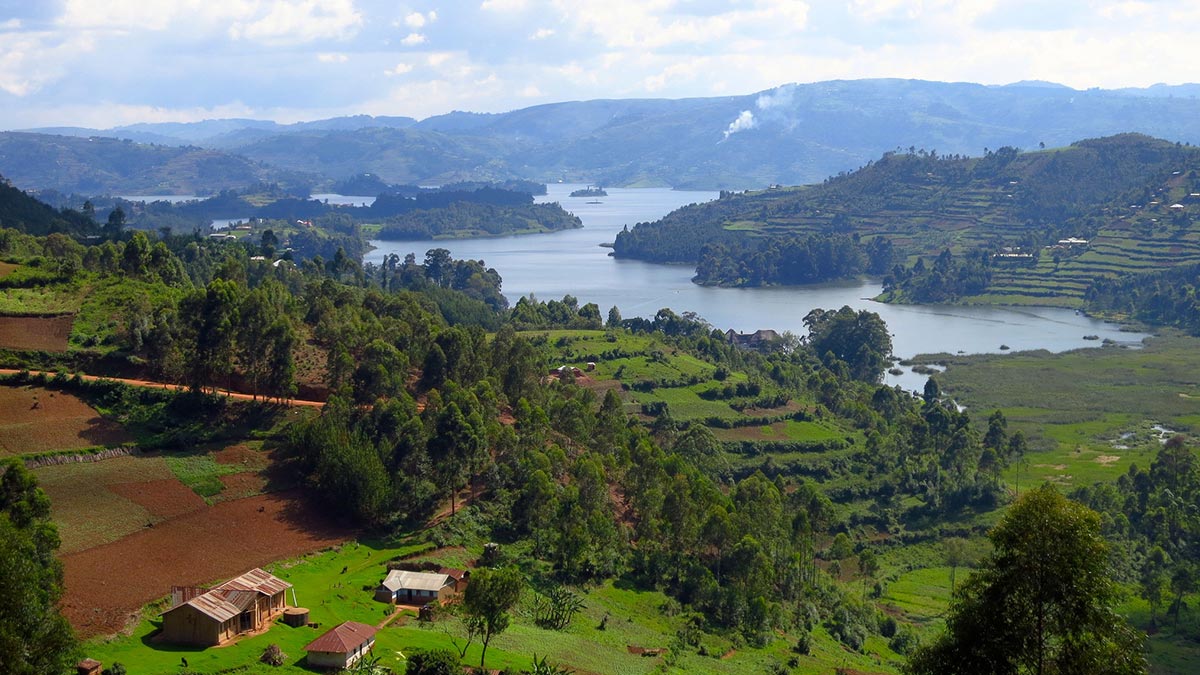
Lake Kivu
Located in the Albertine rift and apart of the Great Rift Valley, Kivu is a large fresh water deposit that marks the western border with DR Congo. This lake is a tourist's centre with fresh waters safe to swim. It has nice beaches with splendid landscapes and the sunset is usually astounding. You can spend a weekend on one of the beaches. Rubavu (also known as Gisenyi) is a waterfront town located on the shores of Lake Kivu, one of Africa's great bodies of water. At only an hour away from Volcanoes National Park, Rubavu is a great way to unwind after trekking adventures. Rubavu marks the beginning of the Congo Nile Trail, which extends 227 km to Rusizi, and has plenty of biking and hiking trails to fulfill those who crave some more adventure. Rubavu is also known for its agro tourism experiences, with many tea and coffee plantations nearby.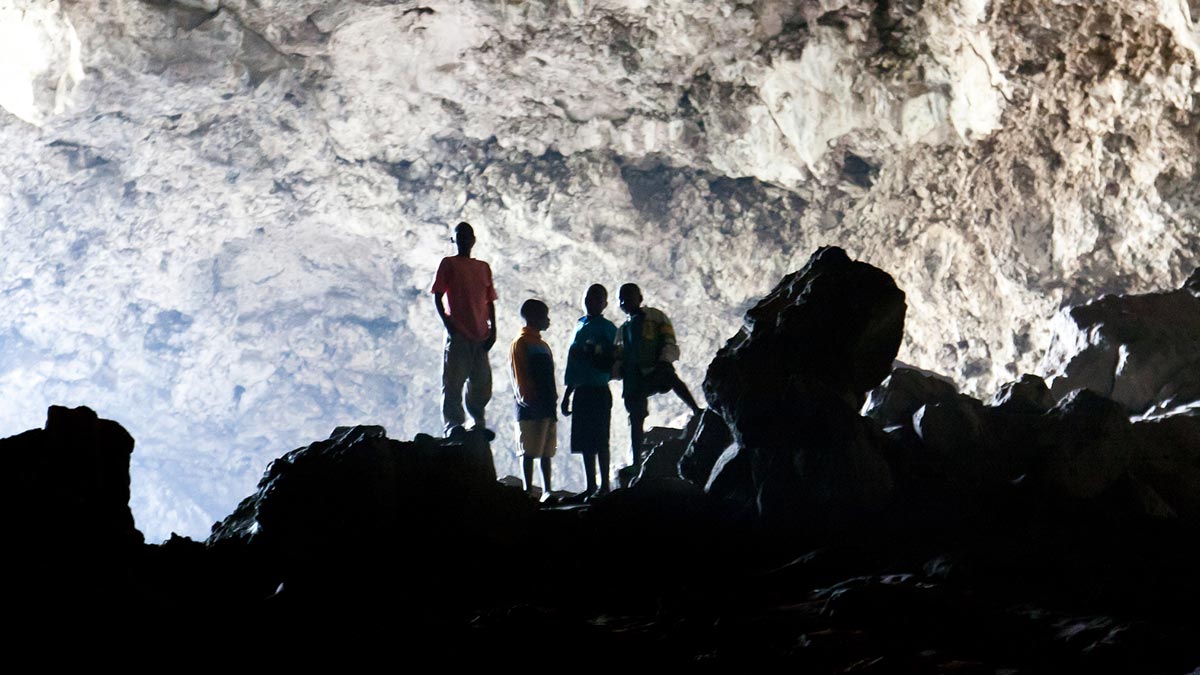
Musanze caves
Formed by centuries of geologic activity centered around the Virunga volcanoes next door, the 1.25-mile long Musanze caves are located just outside of the town they share a name with, and are only a 90-minute drive from Kigali. With an enormous opening (and an equally huge number of bats resident inside), the greenery outside spilling over into the twilight within makes for a fantastic photo op. Though today they’re a tourist attraction, the caves were used as a shelter during wartime for many centuries leading right up into the modern era, and as such, it’s an important site to local people. Thus, out of respect for the area’s residents, access is limited to guided visits. Expert guides lead every tour, and they explain the history of the caves from their formation to present day. The tours make an excellent add-on activity for the afternoon after you’ve seen the gorillas. The tours take about 2.5 hours and can be done at any time throughout the year.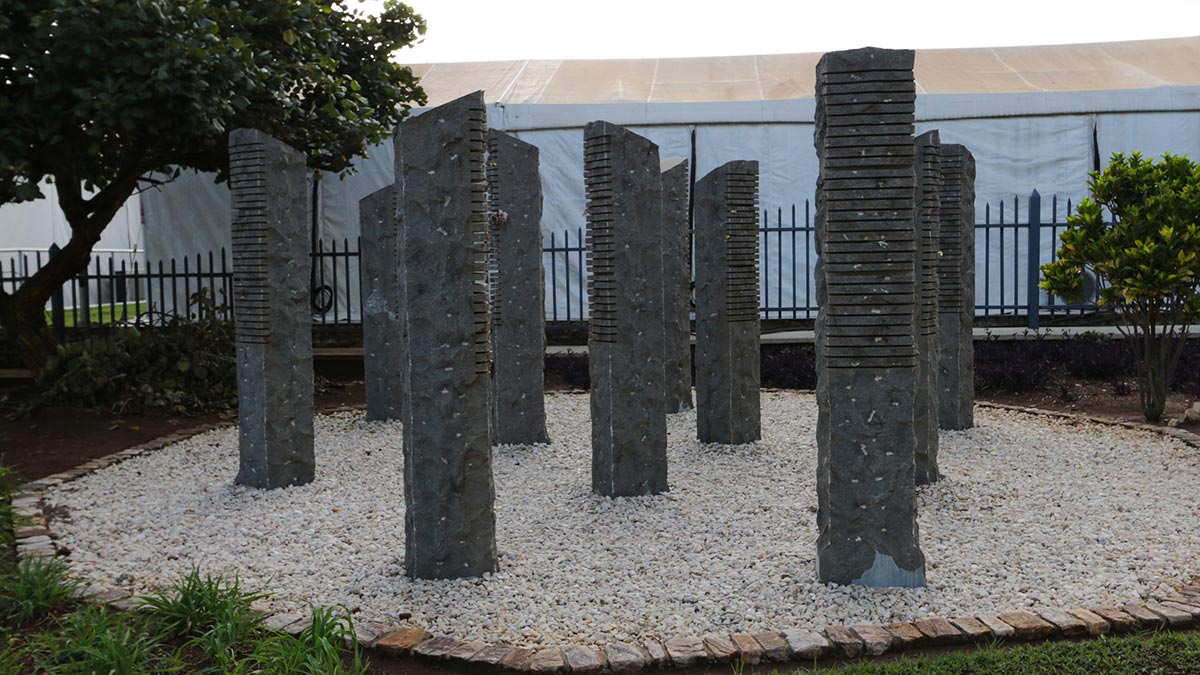
Genocide memorials
The memorials found throughout the country are moving testimonies in memory of the 1994 Genocide against the Tutsi and the people who lost their lives. Inaugurated on the 10th anniversary of the Rwandan genocide, the Kigali Genocide Memorial at Gisozi is where 259,000 victims have been buried. This memorial also serves to educate about how the 1994 Genocide against the Tutsi took shape and examines genocide in the 20th century. There are two genocide memorials outside Kigali. One is Ntarama church that is about 5 km down a right-hand fork that branches off the Nyamata road, roughly 20 km outside Kigali. This church has been left empty just as it was after removing the bodies with scraps of personal items like clothes on the floor. Next to this church is a building where other people seeking safety were massacred. The other church is just is at Nyamata 30 km from Kigali which was a site of horrible massacres. The bodies were also removed although blood stains remain on the walls. A courtyard was dug outside the underground chamber and that's where the skulls of many victims are being displayed.
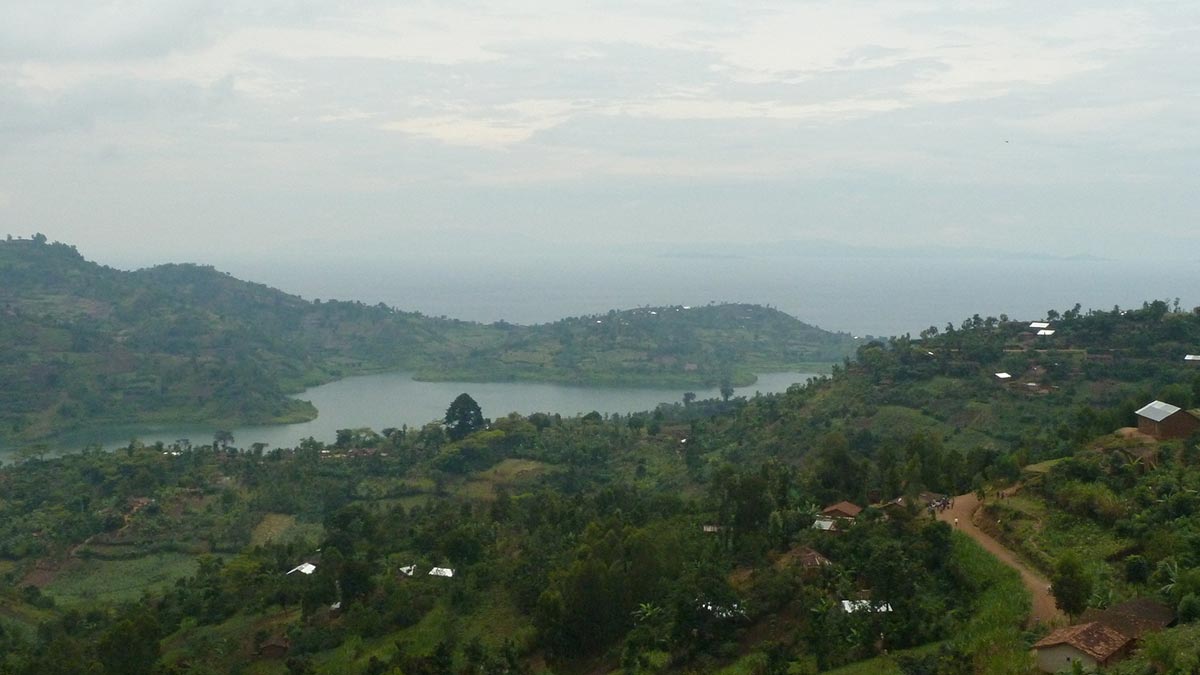
Congo Nile Trail
The Congo Nile Trail is a trail along Lake Kivu that extends from Rubavu and continues through Rutsiro via the Karongi, Nyamasheke districts and ends at Rusizi District, a 227 km stretch of beautiful rolling hills and clear water. The entire trek can be completed in a 10- day hike. However, the trip can be done in sections if travelers do not have the time to complete the entire trail. Trails give stunning views of the Lake Kivu coastline and offer adventurous travelers an exciting way to discover Rwanda. Biking the Congo Nile Trail can be completed in 5 days, with rich views and immersive cultural experiences along the way. This trail appeals to adventure travelers and is a great way to experience Rwanda. The trail can also be split up if visitors do not have the time to commit to the 5 day journey. However, it is an experience worth selling to those who crave an off the beaten path adventure.
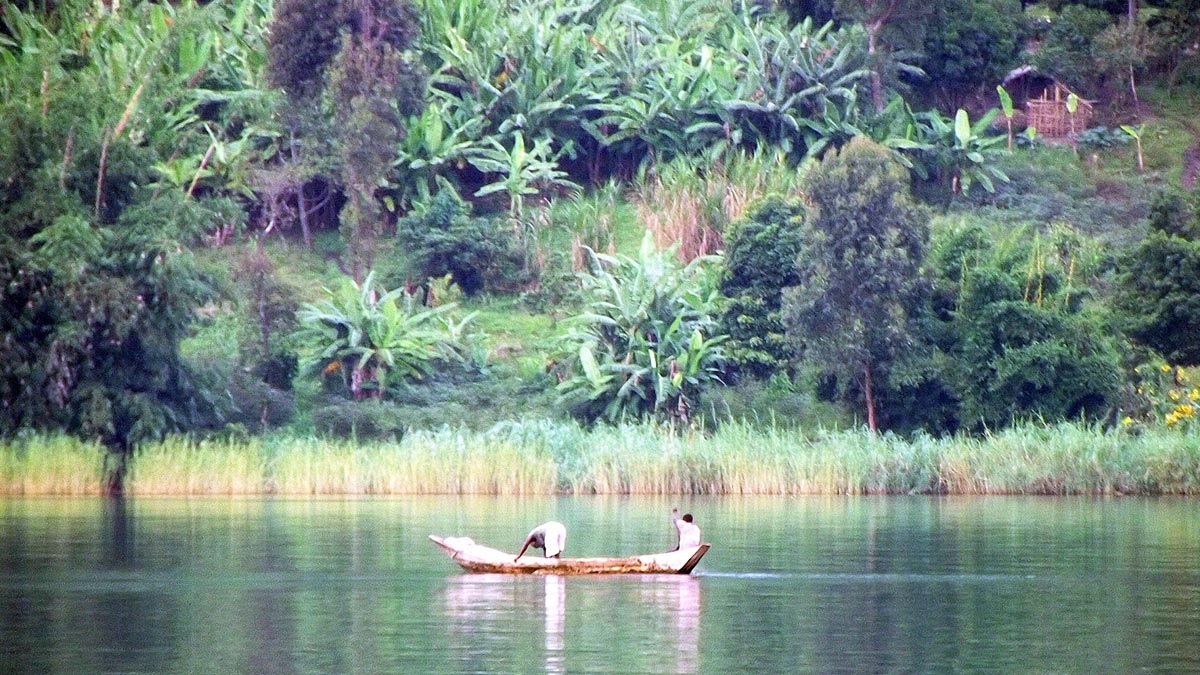
The Furthest Source of River Nile
Over the years, many countries and locations have laid claim to having the 'source of the Nile'! In 2005 - 2006 a team called 'Ascend The Nile' set off from Egypt to trace the entire length of the Nile and eventually they found their goal at the head of the Rukarara River in Rwanda, which is a tributary of the Akagera which flows into Lake Victoria. It is now possible to walk to the Source of the Nile, which is actually located in the northern section of Nyungwe Forest National Park. Treks can be booked from Gisovu Tea Factory in advance and a guide will take you there. The trail takes around 45-60 minutes in each direction and is an easy walk.
Hotel des Milles Colline
This is a hotel in Kigali that is attracting people's attention of recent due to the "Hotel Rwanda" movie and its contribution to Rwanda. The Hotel is known to have housed and protected over 1,268 people under the management of Paul Rusesabagina. Paul took over management of this hotel a few days after the start of the genocide and this was as after the European managers had been flown out. Paul and his wife used to bribe the Hutu Interahamwe Militia with money and alcohol to keep them from killing the refugees.
Nyange High School
3 years after the genocide in Rwanda, groups of rebels kept infiltrating into Rwanda from Congo to destabilize the new government, and carried out massacres, mostly against Tutsis. On the night of 18th March 1997 they raided Nyange Secondary school in the North West of the country. The rebels surrounded the school dining hall and classes when all students were doing their night studies. Students in class 6 were made to lie down and asked to separate themselves into two groups: Hutu and Tutsi. They refused. This is the story of those students - whose refusal to separate cost many of them their lives, among them, a girl named Marie Chantal who was the first to say those magic words, have later honoured as national heroes.
Nyange High School
3 years after the genocide in Rwanda, groups of rebels kept infiltrating into Rwanda from Congo to destabilize the new government, and carried out massacres, mostly against Tutsis. On the night of 18th March 1997 they raided Nyange Secondary school in the North West of the country. The rebels surrounded the school dining hall and classes when all students were doing their night studies. Students in class 6 were made to lie down and asked to separate themselves into two groups: Hutu and Tutsi. They refused. This is the story of those students - whose refusal to separate cost many of them their lives, among them, a girl named Marie Chantal who was the first to say those magic words, have later honoured as national heroes.
